For the millions watching the semi-final World Cup match between France and Morocco, it felt like the ultimate showdown, yet players on both teams fought valiantly and treated each other to hugs and moral support, suggesting a sea change in international relationships between former colonies and their European nemeses (ED).
Brahim El Guabli and Aomar Boum
The unprecedented march of Morocco’s national football team toward the final of the World Cup has come to its end in the semi-final stage; but this is not the end of the story; it is, indeed, only the beginning of countless narratives that will be told about this team’s transformative participation in the world’s most watched sports event: the World Cup.
World Cups are seasons of political controversies, cultural discoveries and emotional national and religious celebrations. During the ongoing 2022 World Cup competition, hosted by the tiny Gulf Emirate of Qatar, Morocco has taken the planet by surprise. Its football team has defeated the most prestigious European teams. Morocco’s feat has defied entrenched global imaginaries of who is worthy of making it to the finals of one of the most sought-after sports events in the world, pushing audiences across the globe to sympathize with these underdogs who suddenly emerge onto a tightly monopolized universal stage that has been historically reserved for developed nations, which is where the cup started in the first place.
A mixture of colonial histories, imbalance of power within FIFA, and maldistribution of sports opportunities has over the years been the condition of possibility for emotional defeat among many nations. Even dreaming of winning the cup outside the Euro-American sphere was impossible — until Morocco’s successes paved the way for the downtrodden and dominated to break through the glass ceiling that looms over this sporting event. Beyond the athletic aspects of Morocco’s successive and unexpected victories against Croatia, Belgium, Spain, and Portugal, the power of the World Cup lies in its ability to bring recognition to nations making it closer to the finals. Breaking several first-time records, Morocco’s match results are not the only surprising aspect of its rise in the World Cup.
The world has discovered Morocco’s pan-nationalism, pan-Africanism, pan-Arabism, its fluid citizenry, its deep Amazighity, its values of motherhood, and its players’ engagement with complex issues in ways that made history. Some of the games Morocco played and won also have a historical charge, particularly in regards to the legacies of Muslim Spain (Al-Andalus), Reconquista and colonialism in Africa and beyond. Morocco’s victories have rubbed French nationalists the wrong way, and a senator from Marseille has demanded that Moroccan flags be banned during the match opposing Morocco to France. Even Eric Zemmour, the failed rightwing French Presidential candidate, sees immigrants’ celebration of Morocco’s wins as disrespectful of their French identity. While football is and remains the determinant of the winner, the broader ramifications of a game extend far beyond the space of the stadium, allowing us to see football, in key moments, as a space for cultural pedagogy and historical conscientization.
How can this team be Moroccan? This is a question that the world was asking. Sixteen of the 26 players were born or raised in European countries, making the team one of the most diverse in the World Cup competition. They are Dutch-Moroccan, Franco-Moroccan, German-Moroccan, Canadian-Moroccan, and Spanish-Moroccan, among others, but they are all bound through their allegiance to Moroccanness. Although some players spent their formative years in Europe, they chose to play for Morocco, fighting for a country their parents left to look for better opportunities through migration. Unlike their parents, who chose Europe as a final recourse to flee poverty and lack of opportunities, these players did the opposite. A facile explanation of their choices would be that European teams are too competitive for them, but this would definitely miss the mark of the deeper meaning of these players’ election of the country of their parents’ origins over their countries of birth and even culture.
This raises the question of integration of immigrants and their descendents in Europe, a question that King Hassan II discussed in many interviews during his televised meetings with the French press in the 1980s and 1990s. In a now-historic interview with Anne Sinclair in 1993, Hassan II underscored the impossibility of Moroccan integration in French and European societies, claiming that the immigrant will always remain Moroccan. In their interviews about why they chose to play for Morocco instead of Netherlands, Spain or Belgium, players and staff expressed their struggles to be accepted because of their religion, race or culture. Unlike the first generation that moved to Europe for temporary work, with the firm belief that they would go back to the bled, their children fought to find their place in these societies, braving xenophobia and Islamophobia. The choice to play for Morocco is therefore partly a rebellion against the structural, cultural and economic forms of racism and exclusion these youth faced growing up in Europe. However, these factors cannot alone explain this choice.
In a bid to cope with their shock at Morocco’s phenomenal rise, some European commentators resorted to sarcasm to cheapen the team’s achievements. One French commentator called the Moroccan team “a European team.” Spain’s former coach Luis Enrique declared before the match opposing his team to Morocco that his players were playing against the team of the United Nations, in reference to the diversity of the Moroccan players’ backgrounds. Sarcasm here conceals racism and one-way understandings of sports as a space where Euro-American teams are the ones who conventionally and traditionally set the rules of the game.
Europeans are, of course, accustomed to including many players of African origins in their teams. However, this same practice becomes problematic when a country from the South, Morocco in this case, uses the same strategy to win. Certainly, Morocco’s choice to build a transnational team would have gone unnoticed if not for its unprecedented successes. Double standards exist and subsist in the way some countries are entitled to build their teams of players from immigrant descent while others cannot. At the same time many observers qualify the participation of these players in the Moroccan team instead of European teams as an abandonment of their obligation to their host country. It should be noted that many players were trained at the Mohammed VI Football Academy, which was inaugurated in Sale in 2009 to rival France’s Clairefontaine Academy. Likewise, a number of the players in European clubs including Yousef En-Nesyri, Nayef Agured and Azzedine Ouhani were the products of this institution.
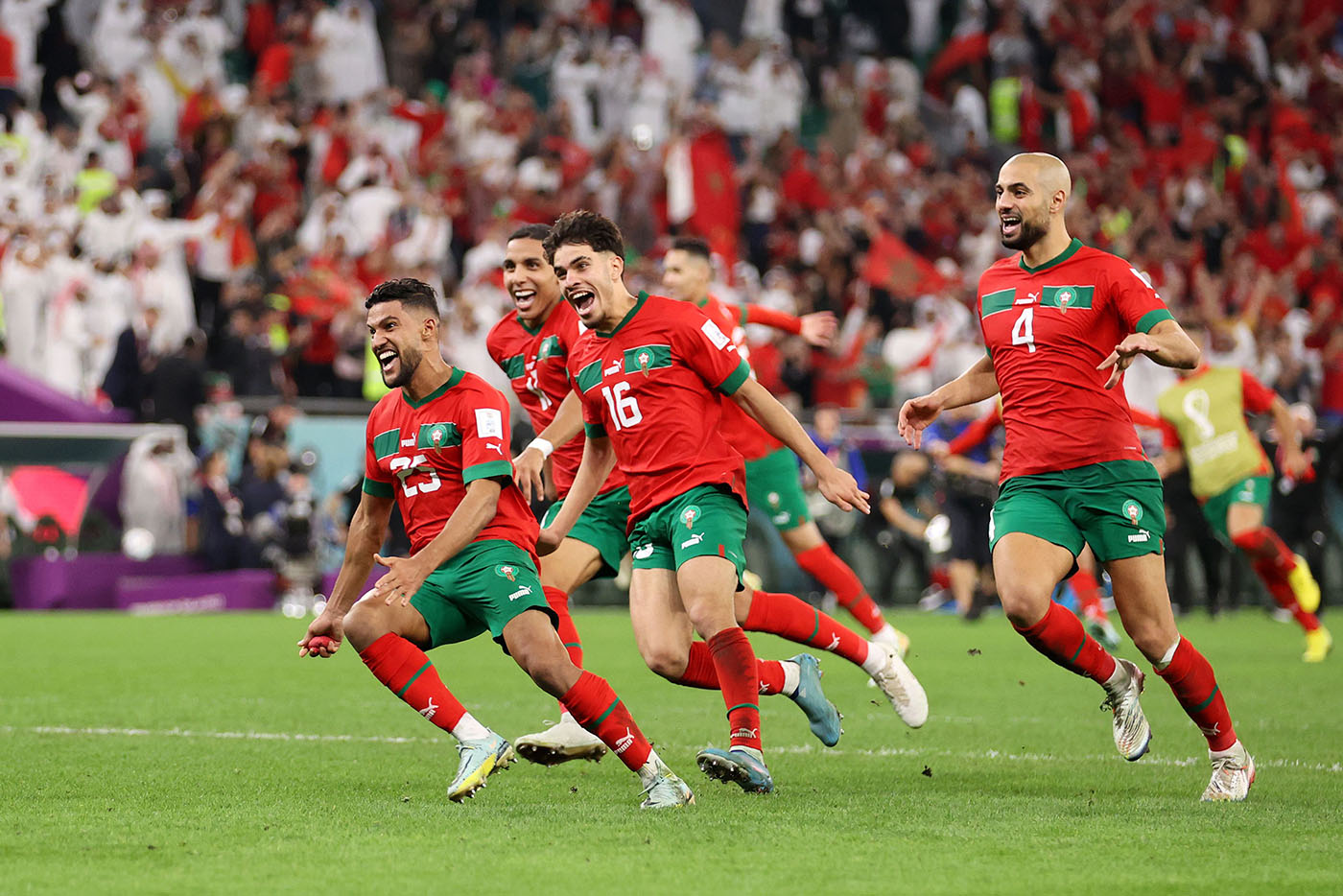
The critique of these double standards leads us to bring up Moroccan pan-nationalism as a cornerstone of these players’ boundless love for Morocco. We mean by pan-nationalism the success of Morocco and its institutions to keep strong ties, albeit imaginary, with the wider Moroccan communities in the diaspora. Morocco is an economic underdog compared to many other countries in Africa and the Middle East. The country has a very strategic location, but it lacks the abundant energy resources of its immediate and far neighbors. As a result, Morocco has historically relied on the remits of the tourism industry and those of its community living abroad to replenish its hard currency reserves and keep its economy afloat. Negotiated immigration agreements, particularly with the Benelux countries in the 1960s, allowed Morocco to find outlets for its excess manual labor and receive financial benefits from the added value it gained abroad.
Meanwhile, Moroccans know Félix Mora very well. A former French sergeant in the colonial administration in the south of Morocco, Mora declared proudly that he had “looked at least one million Moroccans in the eyes — one million Moroccan candidates” during his scouting missions to enlist workers for the French Houillères du bassin du Nord et du Pas-de-Calais. In tandem with the immigration of workers and manual labor, many Moroccan students moved to Europe to study, but never returned to their country of origin, choosing to build their futures abroad. The Regroupement familial, which allowed fathers to bring their wives and children to Europe, shifted migration from its temporary, contractual nature to a permanent situation, opening a host of other issues regarding integration and citizenship in the receiving countries.
Living outside Morocco, however, did not mean that these families cut off their ties with the country of origin. In fact, the Moroccan state put in place institutions, such as Hassan II Foundation and Mohammed V Foundation as well as the National Council for Moroccans Living Abroad, to support migrants and resolve their specific issues, though with varying degrees of success. The fact that Morocco organizes an annual ‘amaliyyat ‘ubūr (Crossing Operation) has since become a marker of this Moroccan pan-nationalism; an annual ritual that takes over Moroccan public sphere and creates a general mood of migration in the country. These annual rituals of crossing, visiting families, and sustaining relationships with relatives far away from Europe are just some of the manifestations of how Moroccan pan-nationalism is sustained and kept across four generations of immigrants. The world may have seen it for the first time in the World Cup, but those who specialize in Morocco know that it is the culmination of a multi-decade effort to tighten the relationship between migrants and their original homeland.
Moroccan pan-nationalism is, however, not a Muslim-only phenomenon. The responses to Morocco’s successes in the World Cup among Moroccan Jews has also been phenomenal. Moroccan Jews across the globe manifested their happiness at the footballistic achievements of a country some of them have never visited. Once one of the largest Jewish homelands in Tamazgha (the broader North Africa) and the Middle East, the majority of Morocco’s 250,000 Jews left the country by the end of the 1970s. Although their negotiated departure to Israel/Palestine, France, and North and South America had a deep impact on local communities, the peaceful and organized nature of the emigration process allowed Morocco to retain a special place in Moroccan Jews’ minds. Unlike their coreligionists in the region, Moroccan Jews have kept their citizenship regardless of where they live, sustaining a firm bond with this homeland. The only explanation of the happiness that swept Moroccan Jewish communities is another manifestation of this Moroccan pan-nationalism, which transcends the physical boundaries of the country to open up a space of belonging and Moroccanness to generations of Moroccans whose only connection to Morocco is it being a remote place of origin.
Moroccanness is a legacy that transcends languages, cultures, passports, identity cards, and myriad forms of identification to simply center Moroccan ancestry. Moroccanness is thus a way of relating to a place, a pan-national identity that one knows is there but that only resurges in big moments like the World Cup.
Moroccans know this reality, but the wider world does not. The World Cup, by the number of analyses and commentary it triggers, has brought attention to these histories of migration in the context of discussions about players who are dual citizens who chose to play for their parents’ countries of origin. Moroccan migrations are mired in histories of colonialism and extraction of labor as well as in the histories of racism and exclusion that are directed at the descendants of immigrants. Morocco’s game with France was a particularly loaded moment since it represents a confrontation between an aspirational present and a colonial past. The game embodies the interimbrication of the world of the former colonizer with the world of the decolonizing nations, who are still seeking their paths toward autonomy and development.
The French team has at least 11 players of African descent, whereas the Moroccan team has at least four players who were born and raised in France. History here is messy, violent, and unforgettable. Colonialism was a deep wound that displaced and dispossessed people, erased their languages and created new geopolitical realities that continue to feed struggles across the African continent. Colonialism is also the reason these youth were brought up in France and are now playing with or against the former colonizer or the formerly colonized. Regardless of the result of the game, however, one thing is sure: the Moroccan team brought back to consciousness the legacies and histories of colonialism not as part of the past, but rather as the present, still unfolding in front of our eyes. Beyond the game, the global desire to see France defeated by Moroccans is a clear indication that the world has changed and that there is a conscientious desire to unsettle colonial domination and right its wrongs, albeit in the football arena.
In fact, history is again important to draw on here. European powers used people from their former colonies, specifically from Africa, as cannon fodder in World I and World War II, and many of the victories that liberated Europe from Nazism were won by Algerians, Moroccans, Guineans, and the Senegalese, just to name a few. Moroccan social media has been replete with comments about how the France-Morocco game is in fact a game between two African teams. Moroccan sarcasm aside, the simple fact that this athletic competition evokes these histories is important to contend with. The game is portrayed as a reminder of the Moroccan stand against French colonial presence in Algeria and its support of Algeria’s independence. On 13 April 1958, at the height of the Algerian War of Independence, and just a few months before the start of the World Cup in Sweden, a group of Algerian players in French football clubs defected from France via Switzerland on their way to Tunis, where they created the team of the Front de Liberation National (FLN). Thus, the FLN Team was born in Tunisia, becoming the sporting voice of the Algerian Liberation movement. They played in international teams against national and club teams from Morocco, Tunisia, Yugoslavia, China and others.
As a result of their support of the Algerian team, Morocco and Tunisia were banned from global competitions for a period of time.
In Qatar, Arab fans, including Moroccans and Palestinians, have seized the opportunity of Morocco’s victories to remind the world of Palestinian people’s rights. Moroccan players brandished the Palestinian flags, spurring significant debates about Morocco’s commitment to decolonization.
The Moroccan team is not just iconoclastic in its transnational composition and the multiple languages and hyphenated identities that its players straddle. It also placed Tamazight, Morocco’s and Tamazgha’s indigenous language, at the heart of the debates about Morocco’s identity. Throughout the entirety of its existence, Tamazight has probably not received as much media coverage as it did in the last three weeks. Tamazight is the language of the Indigenous people of Tamazgha. Since independence, this indigenous language and its speakers have been marginalized in their ancestral homeland, whose elites adopted an Arab-Islamic-centric definition of their national identities for their post-independence states.
A transformative Amazigh Cultural Movement emerged in the 1960s to demand the rehabilitation of their land’s language and culture, succeeding at reversing the previous situation and forcing the state, particularly in Morocco and Algeria, to recognize Tamazight as a constitutional language and put in place institutional setups for its development.
Despite official recognition, Tamazight continues to be marginalized in different ways by elites and decision-makers who think that time is on their side. The fact that the Amazigh flag was brandished at the World Cup by Moroccan players to signal their Amazigh roots has spilt much ink in Morocco and beyond, with people asking whether the Moroccan team was an Arab or an Amazigh team. Amazigh activists have been asserting the Amazighity and Africanity of the team, while others who self-define as Arab rooted for Morocco as an Arab team. These questions, which were not possible two decades ago, reflect the increasing awareness of Morocco’s Amazighity and the need to redefine its place within the Arab and Muslim worlds to foreground its indigeneity.
The fact that Tamazight is the mother tongue of several of the players, who grew up in Europe, and staff, including Faouzi Lekjaa, the President of the Royal Moroccan Football Federation, has been a litmus test for notions of Morocco’s Arab nationalism, which for many years sought to erase Imazighen and their language. The World Cup has boosted Amazigh pride and sharpened the debate about Morocco’s identity in ways never seen in sports before. If this revealed anything, it is that Morocco does not have one identity but rather several overlapping identities that straddle multiple languages and cultures.
Intergenerational and cultural shifts within the team can also be seen in a new brand of thinking about football itself. A coach and players who foreground their Africanity and who dedicate their victories to the Moroccan people — instead of the usual mantra of dedicating every achievement to political authorities —is a seachange for a team that despite itself has always been mired in state politics. Additionally, Walid Regragui, the manager of the Moroccan team, attributes his team’s tours de force to cherished Moroccan values such as “niya” (good intention), “lma‘qul” (rectitude), “sbar”(endurance/patience), “lqana’a” (satisfaction), “nafs” (combative soul) and “rdat al-walidine” (the blessing of one’s parents). In our hyper-scientific world, these notions might seem antiquated and unscientific, but in the world of the Moroccan players they are values that give football a collective dimension beyond just how a game unfolds.
A centerpiece in all of this is the players’ appreciation and respect for their mothers. The world has seen mothers in their Moroccan jellabas dancing with their sons and celebrating the wins, a fact a Gulf commentator criticized, eliciting responses that further asserted Morocco’s cultural Amazighity. In their simple and rudimentary meaning, these pictures shatter many misconceptions of North African womanhood and challenge the ways in which women are siloed and talked about in scholarship. The world learned that Moroccans idolize their mothers, and that the mother is one of the pillars of faith. The niya to succeed in the game or anything requires the moral support of the mother and her prayers. This is contingent upon the willingness of the player to work hard, be content and patient. The world has also learned that these mothers have worked as cleaners and faced all forms of challenges to raise children with limited access to the European dream. Players are now paying them back for their sacrifice by helping them financially and, unlike many teams, the players are joined by their wives, children, members of their extended families and especially mothers.
The world thus has been given a chance to see forms of familial solidarity that may have ceased to exist in other places.
Many will need a long time to fully understand Morocco’s achievement in the World Cup. The championship itself will never be the same. The psychological barrier has fallen, and any Third-World team outside the historically dominant ones can and should aspire to win the cup. The Qatar World Cup has also revealed the importance of the land where the cup is organized in determining the outcome and favoring some teams while disfavoring others. Particularly, Morocco has been playing while being supported by thousands of Moroccan, Arab, and Muslim fans, who would have needed visas and financial clout to make the trip to any Euro-American country. This alone is further reason to question the choice to continue organizing the competition in countries that have strict visa requirements and whose cost of living is higher than what football fans from the Global South can afford. The campaign of criticism against Qatar’s organization of the championship needs to be revisited in light of Morocco’s successes, particularly in regards to the ways in which limited mobility of soccer fans from Africa and other places contributes to the domination of the competition by Euro-American teams.
The world has been barely out of two years of isolation due to the pandemic when the World Cup started. The prowesses of football players in Qatar’s stadiums have broken the monotony of joyless days people spent confined to their homes. Moroccans, like all people of the world, craved occasions to be happy and reemerge from the disorienting impact of the last two years under a brutal pandemic. For a few weeks Moroccans have been able to enjoy lfraja (entertainment) and lfaraḥa and assa‘ada (which both refer to joy and happiness) transcending, albeit temporarily, the pressing issues of the cost of living, unemployment and human rights abuses, which have been plaguing the country in the last couple years. The success in the World Cup could be a moment for the country to open a new page in its human rights record in tandem with the wide open gate its team has opened into football’s future history.



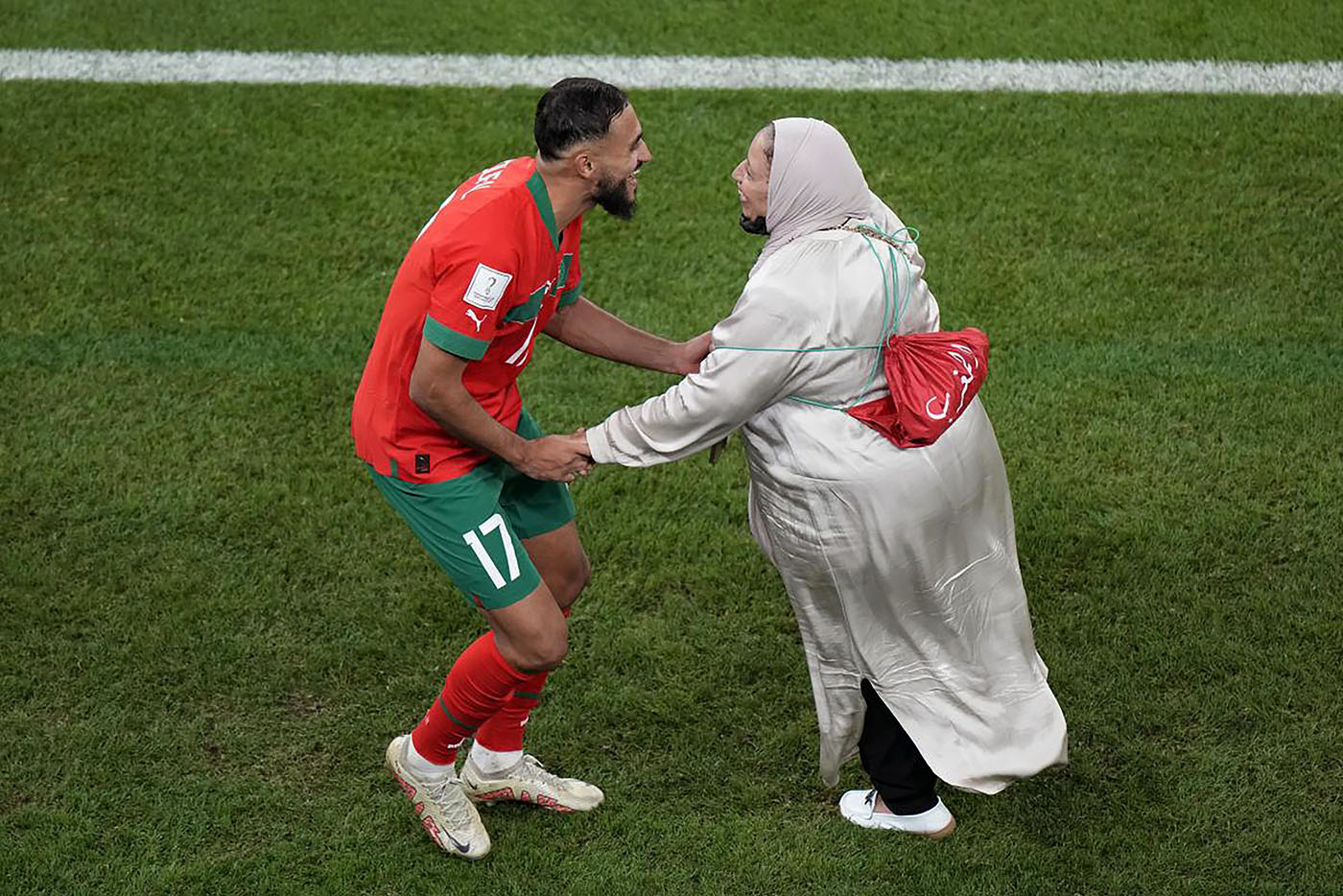
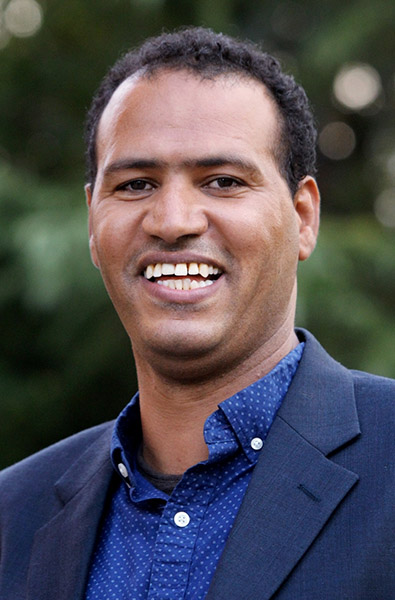
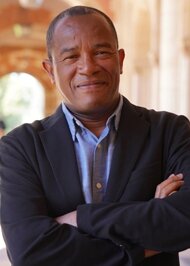

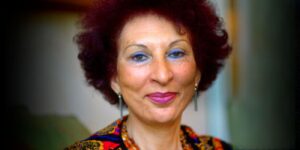
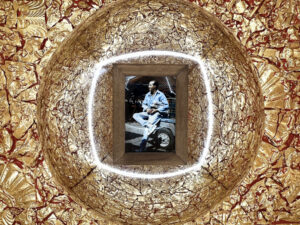



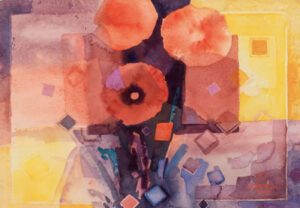

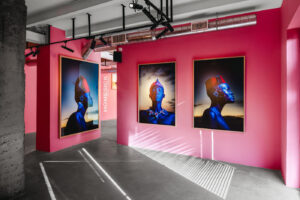
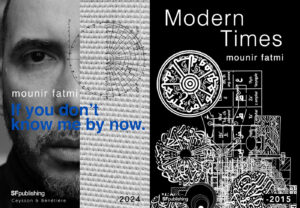


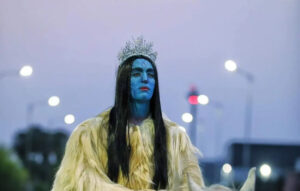


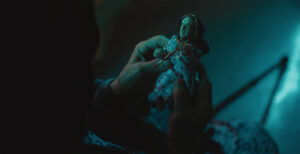
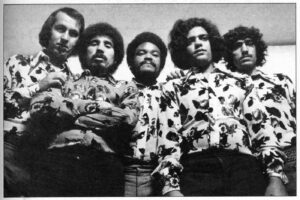


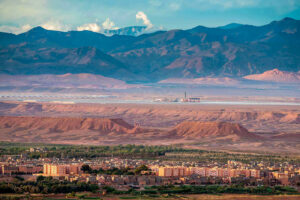
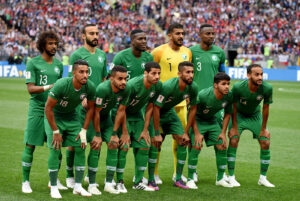


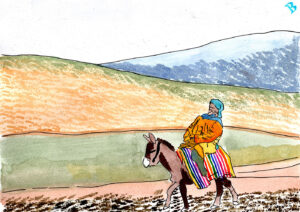
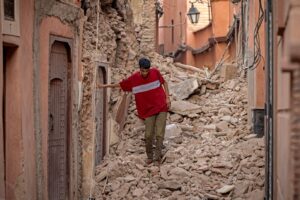

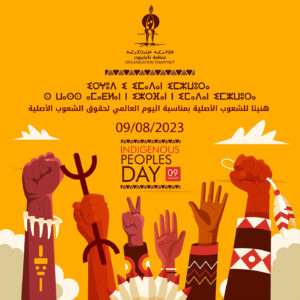

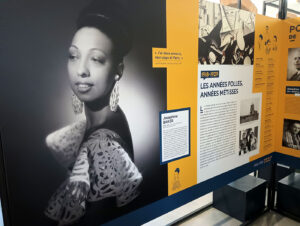
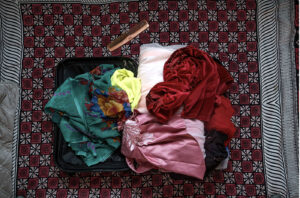
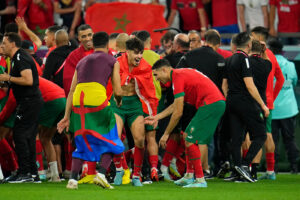
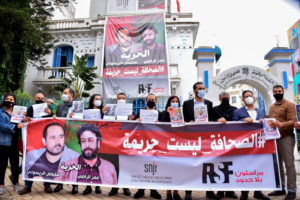
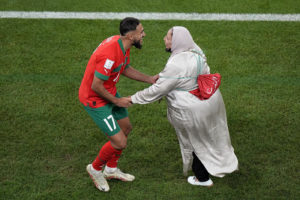
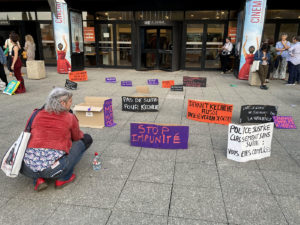
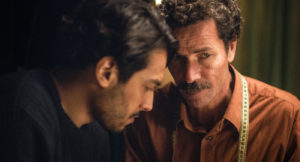







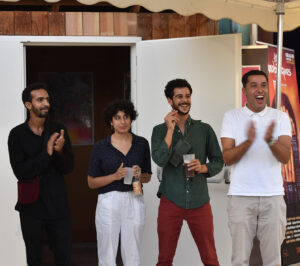




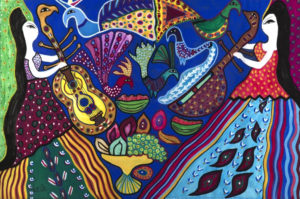
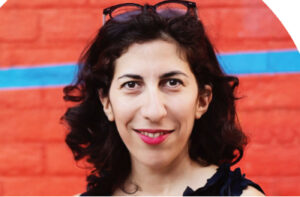

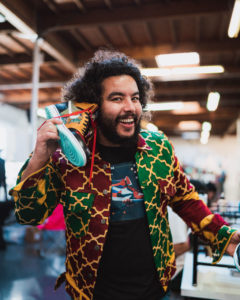








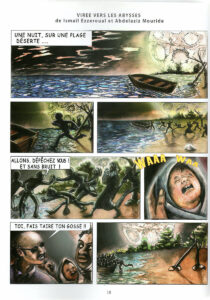

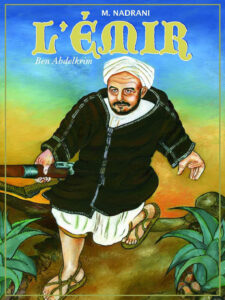





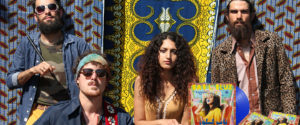
Excellent article!